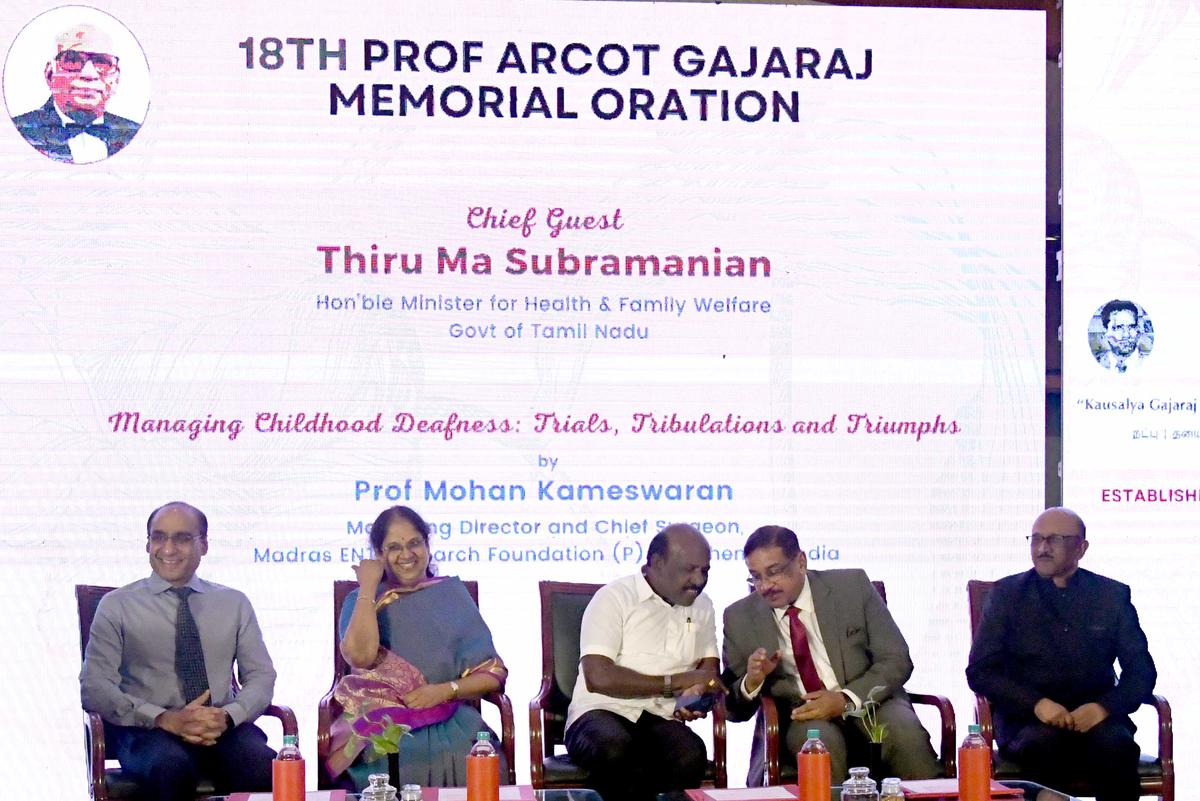
Advances, neural prosthesis helped many children with hearing issues, says expert
The Hindu
Many children who were born deaf and received cochlear implants are now studying in IITs and IIMs, says Mohan Kameswaran
Advances in biomedical engineering and neural prosthesis have greatly helped in habilitation of hearing loss and have helped thousands of children — over 5,000 in Tamil Nadu — to make the transition from the world of silence to the world of sound, Mohan Kameswaran, managing director and chief surgeon, Madras ENT Research Foundation, said.
Delivering the 18th Prof Arcot Gajaraj Memorial Oration on “Managing childhood deafness: trials, tribulations and triumphs” on Saturday, he stressed that early detection and management of hearing loss in children was crucial as it impacted their language acquisition. Early diagnosis and intervention can help a child born with deafness lead a normal life — with normal language acquisition, cognitive development, social skills and normal communication, he said.
Calling cochlear implants as a “life-changing technology”, Professor Kameswaran mentioned how children who were born deaf and received cochlear implants were now studying in IITs and IIMs, in the U.S. and one of whom was making an entry into medical college and another who could speak six languages.
It was in 2004 that the former Chief Minister M. Karunanidhi introduced cochlear implants in the then “Kalaignar Kapeetu Thittam” (now Chief Minister’s Comprehensive Health Insurance Scheme). Today, over 5,000 children in Tamil Nadu, who were born with congenital profound deafness, could hear through cochlear implants, he said.
In the rest of the world, one out of 1,000 babies was born with congenital deafness, he said. “In India, it is double the numbers. In Tamil Nadu, it is six per 1,000 live births.” He attributed the higher incidence in Tamil Nadu to consanguineous marriages and later mentioned that in almost all of them, the main problem was in the cochlear.
He traced how diagnostic tools and interventions for hearing loss evolved over the years.
Talking about rubella and its effects on children, he said that maternal screening in early pregnancy was considered as the standard of care and it was important for girls in high schools to receive vaccination and mass immunisation should be done.













